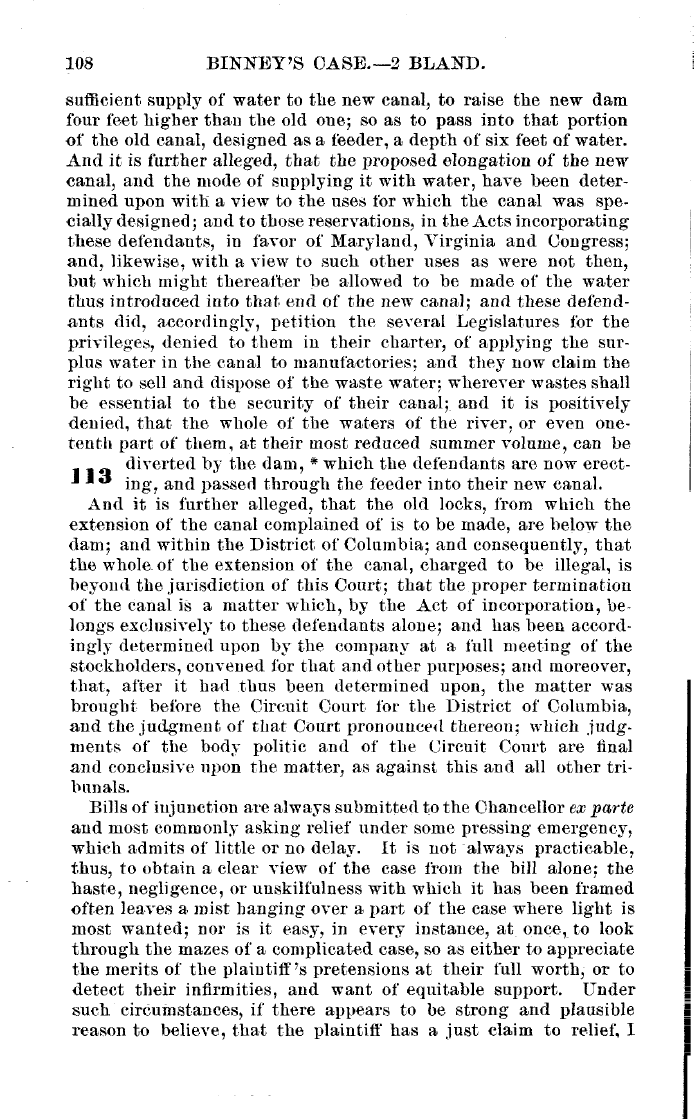|
108 BINNEY'S CASE.-2 BLAND.
sufficient supply of water to the new canal, to raise the new dam
four feet higher than the old one; so as to pass into that portion
of the old canal, designed as a feeder, a depth of six feet of water.
And it is further alleged, that the proposed elongation of the new
canal, and the mode of supplying it with water, have been deter-
mined upon with a view to the uses for which the canal was spe-
cially designed; and to those reservations, in the Acts incorporating
these defendants, in favor of Maryland, Virginia and Congress;
and, likewise, with a view to such other uses as were not then,
but which might thereafter he allowed to be made of the water
thus introduced into that end of the new canal; and these defend-
ants did, accordingly, petition the several Legislatures for the
privileges, denied to them in their charter, of applying the sur-
plus water in the canal to manufactories; and they now claim the
right to sell and dispose of the waste water; wherever wastes shall
be essential to the security of their canal; and it is positively
denied, that the. whole of the waters of the river, or even one-
tenth part of them, at their most reduced summer volume, can be
diverted b5- the dam, * which the defendants are now erect-
3 ing, and passed through the feeder into their new canal.
And it is further alleged, that the old locks, from which the
extension of the canal complained of is to be made, are below the
dam; and witbin the District of Columbia; and consequently, that
the whole-of the extension of the canal, charged to be illegal, is
beyond the jurisdiction of this Court; that the proper termination
of the canal is a matter which, by the Act of incorporation, be-
longs exclusively to these defendants alone; and has been accord-
iDgly determined upon by the company at a full meeting of the
stockholders, convened for that and other purposes; and moreover,
that, after it had thus been determined upon, the matter was
brought before the Circuit Court for the District of Columbia,
and the judgment of that Court pronounced thereon; which judg-
ments of the body politic and of the Circuit Court are final
and conclusive upon the matter, as against this and all other tri-
buna,ls.
Bills of injunction are always submitted to the Chancellor ex pane
and most commonly asking relief under some pressing emergency,
which admits of little or no delay. It is not -always practicable,
thus, to obtain a clear view of the case from the bill alone; the
haste, negligence, or unskilfulness with which it has been framed
often leaves a, mist hanging over a, part of the case where light is
most wanted; nor is it easy, in every instance, at once,- to look
through the mazes of a complicated case, so as either to appreciate
the merits of the plaintiff's pretensions at their full worth, or to
detect their infirmities, and want of equitable support. Under
such circumstances, if there appears to be strong and plausible
reason to believe, that the plaintiff' has a just claim to relief, I
|

